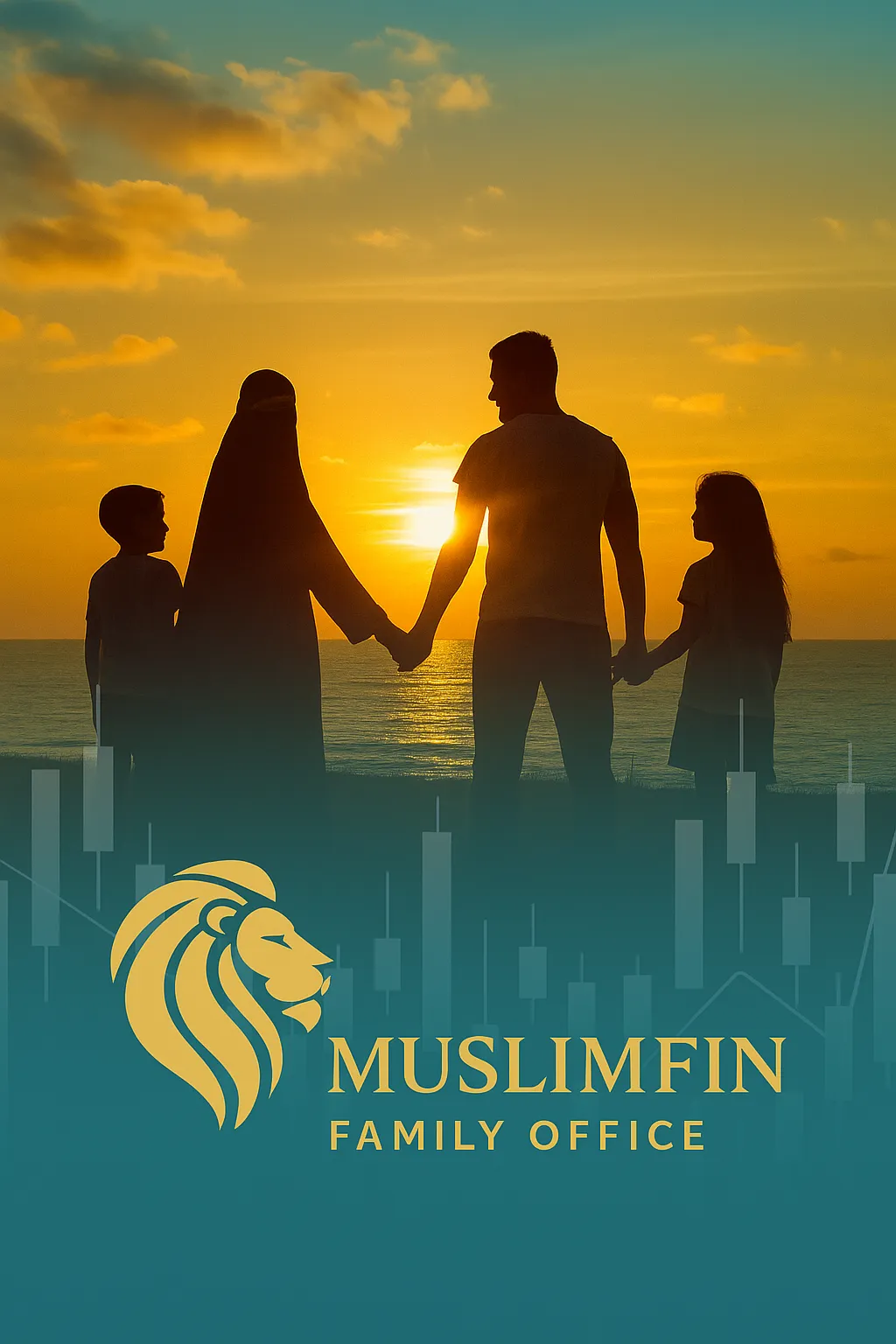
Islamic Family Constitutions: Safeguarding Wealth and Values for HNW Muslim Families in South Africa
“Islamic Family Constitutions: Safeguarding Wealth and Values for Muslim Families in South Africa" by Mogamat Ali Salie
In today’s fast-paced financial world, success is often measured by numbers, assets, returns, and portfolios. However, for many high-net-worth (HNW) and ultra-high-net-worth (UHNW) Muslim families, true prosperity is much more profound. It’s about safeguarding not just wealth, but faith, values, and legacy.
This is where the Islamic Family Constitution comes in. A modern framework grounded in timeless Shariah principles, helping families manage, grow, and transfer wealth with purpose.
At MuslimFin Family Office, our mission is to help families preserve, grow, and transition their wealth in a way that honours both faith and family. We structure businesses, trusts, and investments for Muslim families in South Africa and beyond, ensuring every rand, dollar, or dirham is managed ethically and Shariah-compliantly.
The Roots of the Islamic Family Constitution
The idea isn’t new. It’s inspired by Fiqh al-Usra, the jurisprudence of the family, which guides everything from inheritance to ethical financial dealings in Islam. For centuries, Muslim families maintained informal constitutions through Waqf (endowments), Fara’id (inheritance laws), and fair business practices free from Riba (interest) and Gharar (uncertainty).
Today, with global investments, offshore holdings, and multiple jurisdictions, those principles must be documented clearly. That’s how the modern Islamic Family Constitution evolved, not as a legal constitution, but as a governance charter that defines how a family’s wealth, values, and vision will endure across generations.
Real-World Examples (Names Fictitious)
Consider The Osman Family, a Cape Town-based family that built a thriving logistics empire over 30 years. When the founder, Mr Osman, passed away, confusion arose among the heirs regarding business succession and charitable commitments. Disagreements nearly fractured the business.
By contrast, The Davids Family, another HNW Muslim family in Durban, chose to create an Islamic Family Constitution before such issues arose. Their document outlined how dividends would be distributed, how children would be mentored into leadership, and how profits would support an annual family Waqf project. Today, the Davids family’s wealth continues to grow, but so does their unity.
These examples illustrate one truth: clarity today prevents conflict tomorrow.
Why It Matters for Muslim Families in South Africa
South Africa’s Muslim community has become increasingly active in business, real estate, and investment. Yet, few families have formalised how they wish to manage their wealth in line with both Shariah and South African law.
An Islamic Family Constitution offers:
Preservation of Values and Identity
It ensures every investment, business, and trust aligns with Islamic principles, from avoiding interest-based instruments to promoting ethical impact. It becomes the moral compass of the family’s financial decisions.
Structured Wealth and Succession Planning
Inheritance disputes are among the most common causes of family breakdowns. The Constitution clearly defines distribution according to Fara’id, while allowing space for Waqf and Sadaqah. It also lays out decision-making protocols and leadership roles in family-owned businesses — ensuring harmony and continuity.
Intergenerational Education and Stewardship
Wealth is an amanah (trust), not just an asset. The Constitution helps instil this belief in future generations, teaching heirs financial literacy, Islamic ethics, and the responsibility of using wealth for good.
What Makes a Strong Islamic Family Constitution
Each family’s document is unique, but an effective one often includes:
Vision and Mission Statement – Anchoring the family’s goals and faith-based principles.
Governance Rules – Outlining leadership roles, voting rights, and conflict resolution.
Wealth and Investment Guidelines – Ensuring all investments are halal and socially responsible.
Inheritance and Waqf Provisions – Detailing Shariah-compliant estate planning and charitable allocations.
Dispute Resolution Mechanisms – Promoting mediation and reconciliation over litigation.
MuslimFin Family Office: Your Partner in Legacy Building
At MuslimFin Family Office, we integrate world-class financial expertise with deep Shariah understanding. We guide HNW and UHNW Muslim families through:
Structuring trusts and holding companies ethically
Shariah-compliant estate and tax planning
Drafting and implementing family constitutions
Educating the next generation on financial responsibility
When you work with us, your wealth becomes more than an inheritance; it becomes an enduring amanah, aligned with your values and your vision.
Final Reflection
For Muslim families of wealth, an Islamic Family Constitution is not just paperwork; it’s a living document that preserves faith, fosters unity, and builds resilience across generations.
In a time when fortunes are made and lost quickly, the families who thrive are those who lead with purpose.
If you’re ready to explore how your family can build a legacy rooted in faith, connect with MuslimFin Family Office. Together, let’s ensure your wealth serves its true purpose: to honour your faith, empower your family, and uplift your community.
